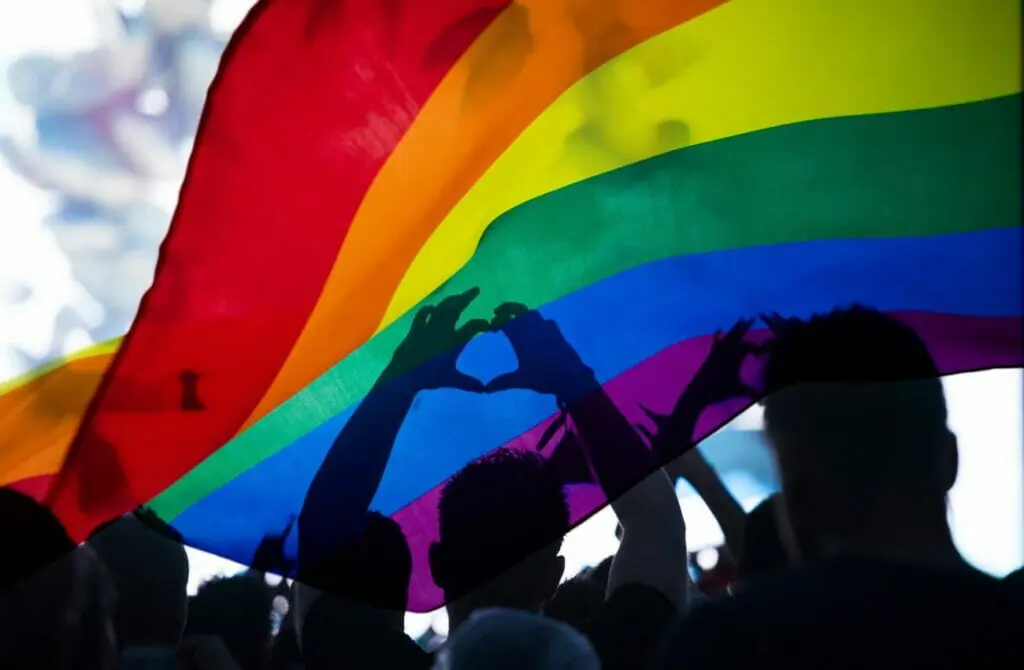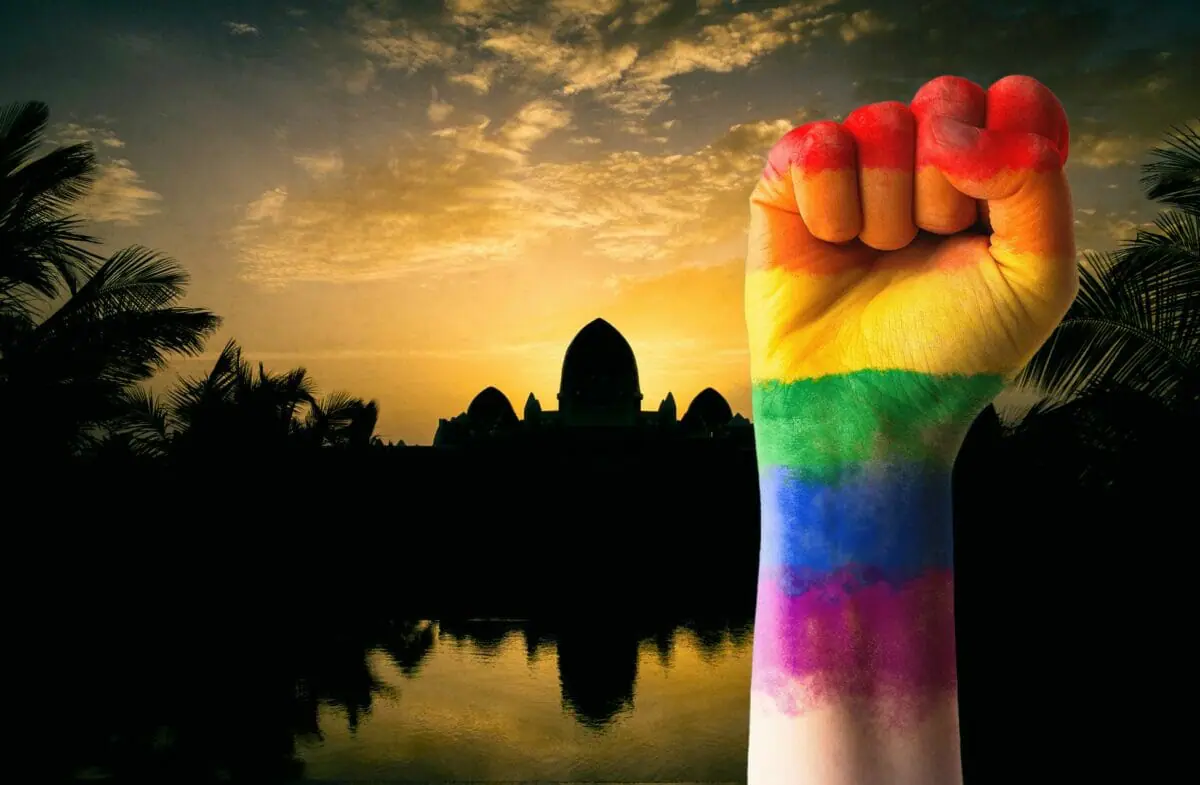Cape Verde, an island nation in West Africa, is making significant strides in the realm of LGBT rights, distinguishing itself from many other African countries. Both male and female same-sex sexual activities are legal, and since 2008, employment discrimination on the basis of sexual orientation has been banned. This progressive approach to LGBT rights has provided local people and even tourists with a more accepting environment in which to live, work, and enjoy their time on the island.
However, it is crucial to keep in mind that while Cape Verde has advanced legal protections for the LGBT community, cultural attitudes may still vary, and experiences can differ based on location and personal circumstances.
Tourists should remain vigilant, as with any destination in the world, and be aware of any potential risks. Keeping abreast of the latest news and advisories before traveling to Cape Verde is recommended to remain informed and prepared for any possible changes in the political or social landscape.
As the situation and acceptance level can change rapidly within any country, individuals, particularly LGBT travelers, should take necessary precautions to ensure their safety and well-being. This can include staying aware of the local LGBTQ+ community and resources available, exercising discretion in certain settings, and having a support system of friends or contacts. In doing so, both locals and tourists can contribute to a more inclusive and secure environment for everyone in Cape Verde.
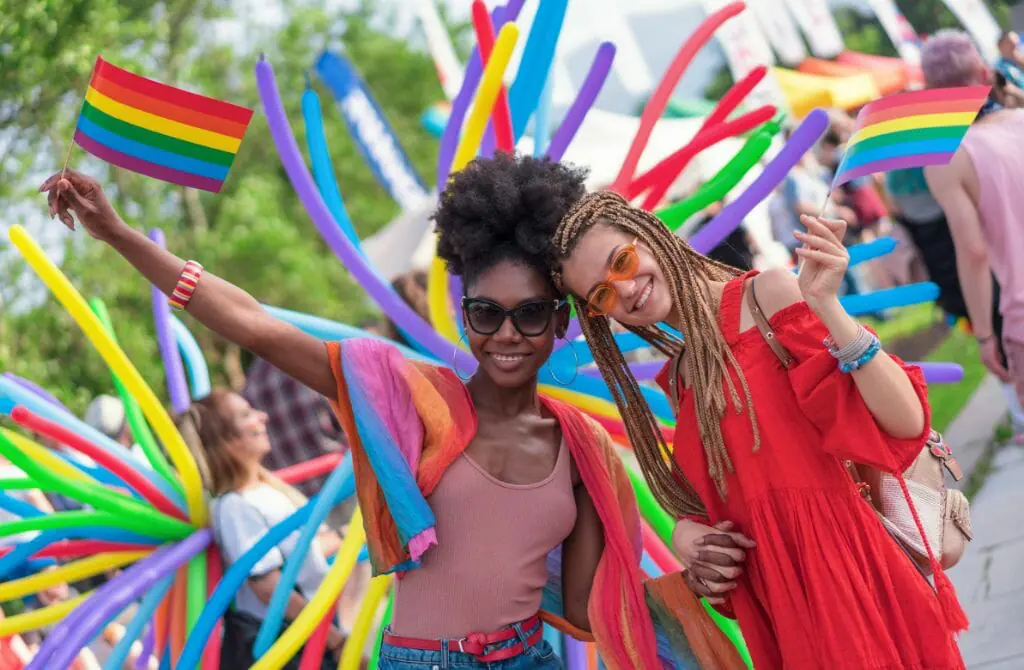
History of LGBT Rights In Cape Verde
Cape Verde, a former Portuguese colony, has taken significant strides in promoting LGBT rights. In 2004, the country amended its Penal Code to remove all provisions related to consensual homosexual sex, making it the second African country to decriminalize homosexuality after South Africa. Cape Verde’s first LGBT event was held in the city of Mindelo in June 2013. Due to its close relationship with Portugal and Brazil, Cape Verde is often considered one of the most tolerant nations in Africa for LGBT people.
However, despite legal advancements, discrimination still persists in some areas. LGBT rights in Cape Verde are limited when it comes to the recognition of non-binary gender and protections against employment discrimination based on sexual orientation. Furthermore, while there are no laws in place regarding censorship, non-binary gender recognition is not legally acknowledged, and same-sex marriage remains unrecognized.
For tourists, Cape Verde is generally a safe destination, but like any other country, it is crucial to remain vigilant against potential bad actors. Situations can change rapidly, and information may become outdated, so it is essential to seek the most current advice before traveling. While locals are often welcoming towards tourists regardless of their sexual orientation, it is essential to exercise caution in more conservative areas.
To protect themselves, travelers should familiarize themselves with local laws and customs, avoid engaging in public displays of affection in conservative areas, and maintain a low profile if necessary. Connecting with local LGBT organizations and communities can also provide valuable information about the situation on the ground and any potential risks.
In conclusion, Cape Verde has made significant progress in championing LGBT rights, but as with any country, caution is advised. It is essential to maintain vigilance and stay informed about the current political and social climate, as well as always being mindful of personal safety.
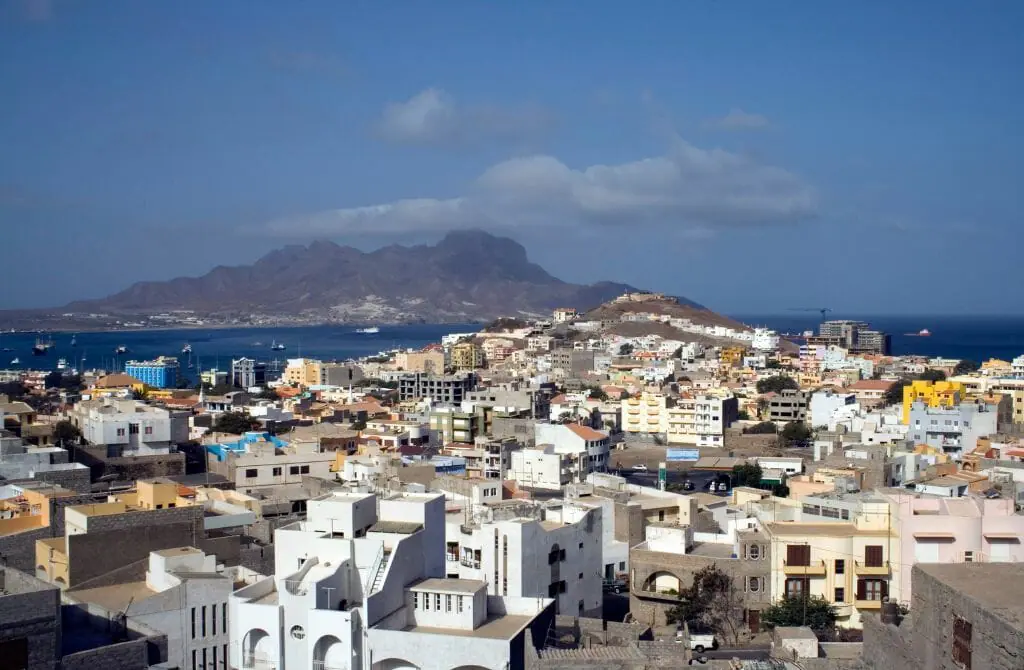
The Current Situation In Cape Verde
Cape Verde holds the reputation for being one of the most tolerant countries in Africa when it comes to LGBT rights, even though some legal limitations still exist. For local people, discrimination based on sexual orientation in the workplace is illegal under articles 45(2) and 406(3) of the Labour Code, having been put in place since 2008. However, it is important to note that these protections only extend to employment discrimination based on sexual orientation and not to housing or other aspects of daily life.
In contrast, tourists visiting Cape Verde may find a more welcoming environment, particularly on the island of Sal, which has been referred to as an “LGBT oasis” in Africa. Nevertheless, it’s essential for visitors to remain vigilant and respect local customs and cultural sensitivities, as, like any country, there can be individuals with negative attitudes or intentions.
While Cape Verde has made strides towards LGBT rights, certain areas still have room for improvement, such as legal recognition of same-sex marriages, gender identity changes, and adoption rights for couples. While not directly affecting tourists, these issues impact the broader social environment for the LGBT community in Cape Verde.
It is important to stay informed and up-to-date on the latest information regarding LGBT rights in Cape Verde, as the situation can change rapidly in any country. Before traveling, seeking current advice from reputable sources is recommended to ensure personal safety and comfort during your stay in Cape Verde. Remember to exercise caution and be aware of your surroundings, as bad actors can be present in any location.
Staying vigilant and educated on the local situation will contribute to a safer and more enjoyable experience in Cape Verde, both for the LGBT community and all visitors alike.
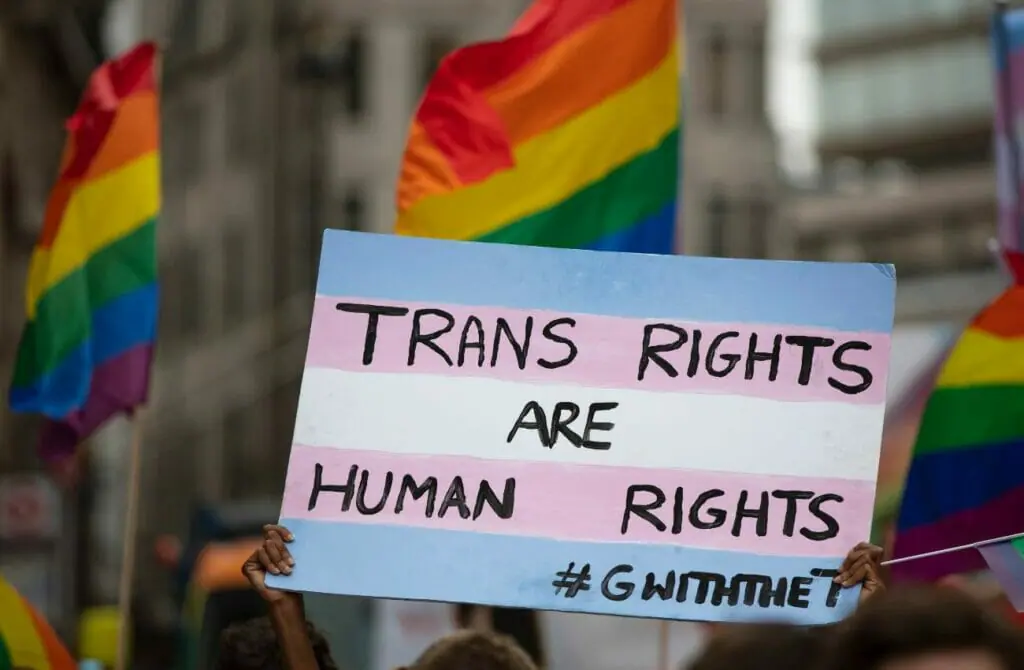

The Future For The Queer Community In Cape Verde
In Cape Verde, LGBT rights have come a long way, with same-sex sexual acts being decriminalized in 2004. However, there is still much progress to be made, especially concerning the rights and acceptance of local LGBT citizens compared to tourists.
While Cape Verde has been considered a relatively safe country for LGBT tourists, the same level of acceptance and safety may not extend to the local LGBT population. Locals may face discrimination, limited legal protections, and lack of recognition for their rights, such as marriage equality and gender identity recognition.
To ensure a safe and enjoyable stay in Cape Verde, LGBT travelers should take precautions and remain vigilant. Bad actors are present in every country, and Cape Verde is no exception. It’s essential to be discreet, respect local customs, and avoid public displays of affection to prevent unwanted attention.
As for the future of LGBT rights in Cape Verde, advocacy groups and international organizations can work together to promote changes in local laws and policies. Future steps might include introducing legislation to legalize same-sex marriage, providing legal protections against employment and housing discrimination, and offering recognition for non-binary and transgender individuals.
It’s important to remember that situations can change quickly, and information may become outdated. Before traveling, it’s best to seek the most current advice and be aware of any recent developments in LGBT rights within Cape Verde.
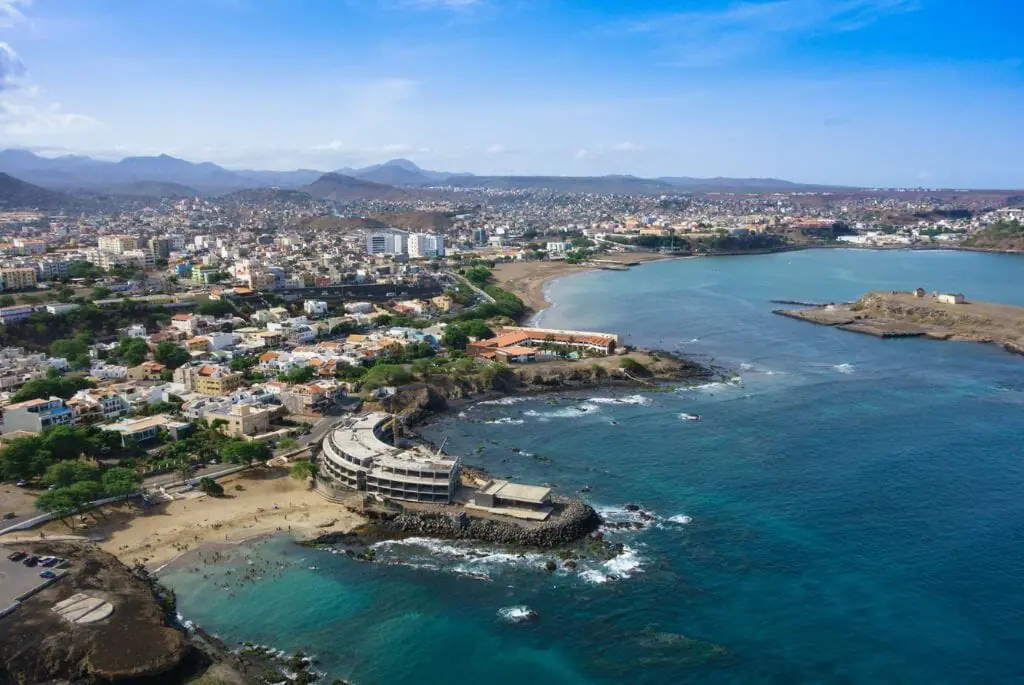
Protect Yourself While Travelling In Gay Cape Verde
In Cape Verde, LGBT rights offer greater protections than those in many other African countries. Both male and female same-sex sexual activities are legal, and discrimination based on sexual orientation in the workplace has been banned since 2008. While these legal protections apply to both locals and tourists, it’s crucial to be aware of the specific rights afforded to LGBT individuals and how they might differ in practice.
For LGBT tourists, the laws protecting against discrimination should generally enable comfortable traveling throughout the country. However, do not assume that these laws will be enforced consistently or that every individual will be welcoming and accepting of your identity. Remain vigilant, respect cultural differences, and avoid overt displays of affection in public spaces.
To protect yourself, consider the following steps:
- Research and choose accommodations that are openly LGBT-friendly, or rely on trusted platforms and networks for recommendations.
- Stay informed of local customs, attitudes, and sensitivities towards LGBT individuals when traveling to different regions within Cape Verde, as they may vary.
- Ensure you have the contact information for your country’s embassy or consulate, as well as reputable local organizations that support LGBT rights, should you need assistance or legal support while traveling.
- Stay updated on any changes in LGBT rights and local sentiment in Cape Verde, as situations can change rapidly, and your safety could be affected.
Always keep in mind that while Cape Verde may appear as a progressive oasis for LGBT individuals, it is still essential to remain vigilant and cautious throughout your travels. Unwarranted incidents can happen in any country, and being informed, prepared, and proactive will help you better protect yourself. Situations can change fast, and information can be out of date; seek current advice before traveling.
